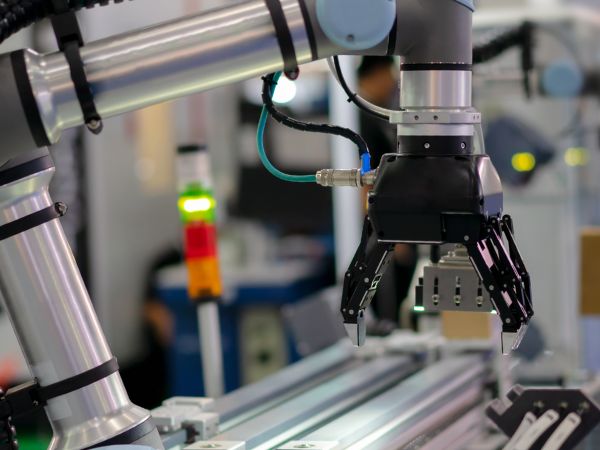We are dedicated to providing automation solutions that enhance precision, efficiency, and reliability in the manufacturing of complex automotive electronics. An essential aspect of this is automated testing, which guarantees that each product adheres to stringent quality standards. By integrating functional testing, vision inspection, and dimensional analysis into the production workflow, our solutions enable manufacturers to uphold exceptional quality control over intricate electronic components.
The Complexity of Modern Automotive Electronics
As automotive technology advances, vehicles are increasingly reliant on sophisticated electronic systems. From On-Board Chargers (OBC) to Electronic Power Distribution Units (ePDU), these components must perform flawlessly to ensure the safety and reliability of the vehicle. However, manufacturing these intricate devices poses significant challenges, particularly when it comes to maintaining consistent quality.
Traditional quality control methods, such as manual inspections, are no longer sufficient for today’s demanding production environments. As the complexity of automotive electronics increases, so too does the need for more advanced and automated methods of ensuring quality. This is where automated testing solutions become invaluable, enabling manufacturers to ensure that every unit meets the highest standards of performance and precision.
Functional Assessments: Ensuring Performance and Reliability
Functional assessments are a fundamental aspect of automated testing systems. These assessments verify that each electronic component performs its intended function under a range of conditions, ensuring that the part will operate reliably in the field. In complex automotive electronics, this is essential—any failure can lead to significant safety risks or operational downtime.
Automated functional testing stations are equipped with advanced sensors and software that simulate real-world conditions to test the performance of electronic components. For example, an OBC must be able to handle a variety of voltage levels, temperature ranges, and load conditions. Automated testing solutions subject each unit to these variables, ensuring that it performs within specified parameters.
This process not only detects any potential failures before the product leaves the factory but also provides valuable data for continuous improvement. If a component consistently fails under certain conditions, manufacturers can adjust their processes to address the issue, ensuring a more robust and reliable product over time.
Vision Checks: Identifying Visual Defects Early
In addition to functional assessments, automated testing stations use vision checks to identify physical defects that could affect the quality or performance of the product. High-resolution cameras, paired with machine learning algorithms, scan each unit for anomalies such as misaligned components, missing parts, or surface imperfections.
For automotive electronics, even minor visual defects can lead to significant problems down the line. A small misalignment in a circuit board could result in a short circuit or reduce the efficiency of the component. By automating the visual inspection process, manufacturers can catch these defects early in production, preventing faulty products from reaching customers.
The advantage of automated vision checks lies in their speed and accuracy. Unlike manual inspections, which are subject to human error and fatigue, automated systems can perform thousands of inspections with consistent precision. These systems are capable of identifying defects that may be too small or subtle for the human eye to detect, ensuring that every component leaving the production line is of the highest quality.
Dimensional Analysis: Precision Down to the Micron
Dimensional accuracy is required in the manufacturing of automotive electronics. Components must fit together perfectly within the limited space of a vehicle’s system, and even small deviations from the intended dimensions can cause failures. Automated testing systems equipped with dimensional analysis tools ensure that every part meets exacting size and shape specifications.
Using technologies such as laser scanners and coordinate measuring machines (CMMs), automated systems measure the dimensions of each component with micron-level precision. This level of accuracy is especially important for products like ePDUs, where the correct placement and connection of each element are essential for proper functionality.
Dimensional analysis also plays a key role in ensuring the consistency of mass-produced components. In high-volume manufacturing, even slight variations between batches can lead to significant issues. Automated systems can quickly detect any deviations from the standard specifications, allowing manufacturers to make immediate adjustments and maintain consistent product quality.
The Benefits of Automated Testing for Manufacturers
The implementation of automated testing solutions offers several significant benefits to manufacturers of complex automotive electronics:
- Increased Efficiency: Automated testing stations operate continuously, without the need for breaks or downtime. This increases the overall efficiency of the production process, allowing manufacturers to meet higher production targets without sacrificing quality.
- Cost Savings: By catching defects early in the production process, automated testing reduces the need for costly rework or product recalls. It also minimises the risk of faulty products reaching the market, which can damage a manufacturer’s reputation and lead to expensive warranty claims.
- Enhanced Data Collection: Automated testing solutions collect detailed data on each component tested. This data can be used to identify trends and areas for improvement, leading to more efficient production processes and higher-quality products.
- Scalability: As production volumes increase, automated testing solutions can easily scale to meet the demand. Whether manufacturing a few hundred units or several thousand, these systems ensure consistent quality across all production runs.
Driving Future Innovation with Automated Testing
By integrating functional assessments, vision checks, and dimensional analysis into production processes, manufacturers can maintain the high standards of quality that today’s market demands.
Our automated testing solutions enable manufacturers to not only meet but exceed their quality control targets, delivering reliable, high-performance electronics that are critical to the success of the automotive industry. With our advanced systems, manufacturers can ensure that their products are built to the highest standards, helping them stay competitive.


